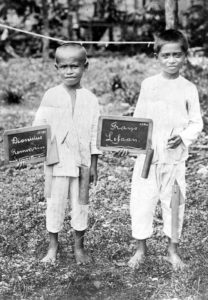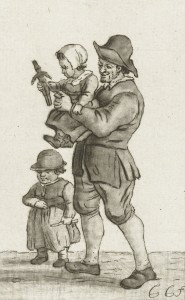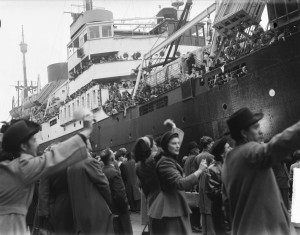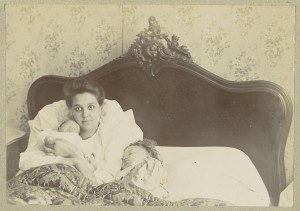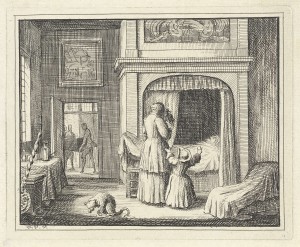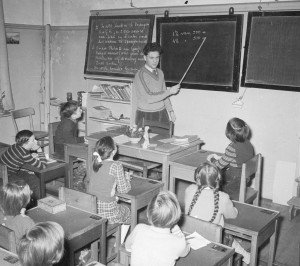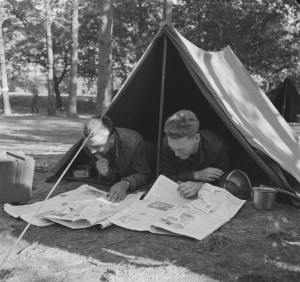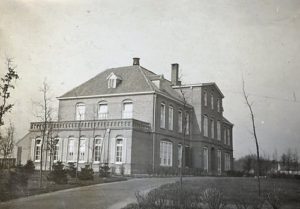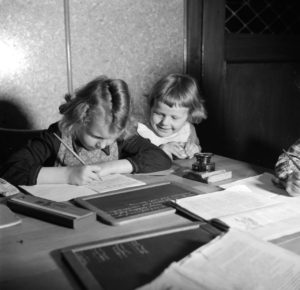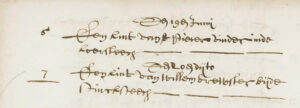Identity is more than a name. Just because two records show the same name, does not mean they are for the same person. The reverse is true too. Just because two records show a different name, does not mean they are for different persons. People could use different names throughout their lifetime. Some examples: Some people used patronymics and later adopted a surname. They might be listed under their patronymic in one record, and under their surname in another. Some people … [Read more...]
Quick tip – Who was your ancestor the guardian for?
I have written before about using guardianship records for genealogical research. Most often, we use these records to find out who became the guardian over minor children after our ancestors died. Less often, we will check those records to see for whom our ancestors were guardians. Since guardians were often close relatives, this can be a clue about the ancestor's family. If guardianships are indexed, that is usually by the (deceaded) parents only, not by guardian, so this may require turning … [Read more...]
Quick tip – Were They the Only Immigrants in the family?
If you are researching an immigrant, they may not have been the only one in the family to immigrate. People often travelled in groups, consisting of friends and family members. Once an immigrant was established, they often encouraged others to follow. If you research their family back home, you may discover several others who also emigrated. Sometimes passenger lists will mention that they were joining a relative. … [Read more...]
Quick tip – (Not) Naming Children After Parents
Traditionally, many Dutch children were named after family members: grandparents, deceased siblings, deceased spouses of their parents, or aunts and uncles. Though some children were named after their parents, this is rather rare. One instance where it is common for a child to be named after their parent is when the parent had died. For example, if a father died when the mother was pregnant, a son would often be given the father's name, and a girl might receive a variation of the father's … [Read more...]
Quick tip – Were the parents really deceased?
In marriage records, you may often find a note that the parents had died. Depending on the time and place, this was not necessarily the truth. Saying the parents were dead was an easy way to avoid having to prove parental permission. If it is a civil registration marriage record (after 1811 in most places), you may find proof of death in the marriage supplements. The law stipulated that a person under the age of 30 had to provide parental permission or proof of death of the parents, or even … [Read more...]
Quick tip – What is the Higher Authority?
Try finding out what higher authorities may have created records about your ancestors. A few examples: If you are researching in a specific municipality, check the records of the province to see what records they received from that municipality. If you find a court case, find out what the appellate court was to see if there was an appeal. If your ancestor worked for a school, find out who appointed the teachers. Until recent times, this typically was either the church or the … [Read more...]
Quick tip – Newspapers as gateway to other records
Newspapers sometimes announced important events in our ancestors' lives. Knowing that an event took place can lead you to other records. Examples: A family announcement may lead you to birth, marriage, or death records. An announcement of a public auction of real or personal goods may alert you to possible notarial records. A call for creditors to come forward may alert you to a bankruptcy. A notice by a company that someone is no longer their agent may alert you to company … [Read more...]
Quick tip – Follow up on unusual death places
If your ancestors died in a place where they did not live, there could be a story there. Perhaps they were committed to a mental hospital, like Thomas Cammenga or Gerrit Jan van Nijkerken. Perhaps they met with an accident, like Adriaan Marijnissen. Perhaps they were in jail, or visiting relatives. You can check the links articles for examples of how you can approach such research. … [Read more...]
Quick tip – Spelling variations
In the past, there was no concept of official spelling. Do not rule out that a record is for your person just because their name is not spelled the way you think it should have been. In the Netherlands, spelling of surnames should have been fixed since 1811, but errors occurred even later. We tend to think of the written word as the canonical version, but in the past it was the spoken word. The written version was just a derivative. And don't forget that many of our ancestors were illiterate … [Read more...]
Quick tip – Burials under name of husband or father
Many burial registers and related registers like burial fees registers recorded entries under the name of the head of household. Entries might be for the wife of Jan Claesz, or the child of Pieter Willems. If you cannot find a married woman in a burial register, check under her husband's name. If you cannot find an unmarried person, such as a minor child, in a burial register, check under their father's name. … [Read more...]
